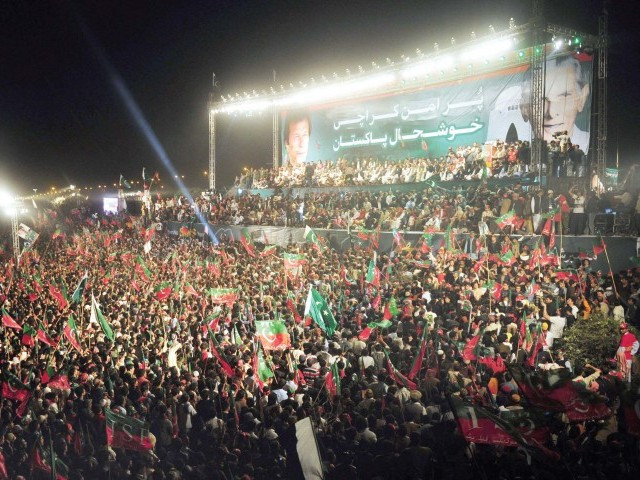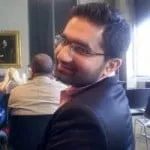In Pakistan, the spirit of the Arab Spring is playing out to a different tune. Instead of adopting “overthrow of the system” as their battle cry ala the Arab Spring, a visible and growing number of young, educated professionals in Pakistan are channeling their energies to incrementally improve the system by engaging with the current set up. Young Pakistanis, including many who have traveled to the West to get educated, are returning home to make active contributions in fields as diverse as public policy, journalism and police reform.
This shouldn’t come as a surprise.
Pakistan’s youth already has freedoms that their Arab brethren are laying down their lives for; the right to elect their own leaders, the right to speak freely, and the right to assemble and protest. However, even with these rights and a democratic government at the helm, the political system in the country isn’t responding as quickly as it could to create a secure, economically stable future for its citizens.
Sana Gulzar, a Fulbright scholar who recently returned home after completing a Master’s degree from Columbia University’s Graduate School of Journalism says:
“Pakistan is where I need to be right now”
A few days after flying back from New York, a bomb blast in Karachi “validated” her decision to return by serving as a reminder that the country needs young people like her right now.
“I had forgotten how it felt emotionally to be in a country which is at war,” says Sana, who didn’t want to settle in the US after her education. She was eager to return home and use her journalism skills to tell stories about ‘real people’ in the country instead of the violence and political shenanigans that usually get disproportionate coverage in the media.
A passionate broadcast journalist with a documentary film to her credit, Sana recently joined the BBC Urdu Service. “It’s time to let go of the 90’s mentality, when people used to think that being active in politics or journalism is dirty,” Sana remarks, arguing that young people need to step up and influence society positively through their work.
“Pakistan has hit rock bottom or is pretty close to it,” says Sana, going on to explain that a turnaround is possible and will be triggered by young people. “We have the systems in place; it’s just a matter of putting our energy together to make the systems work.”
Interestingly, a growing number of educated professionals in Pakistan are trying to do just that. Meet Saad Gulzar (not related to Sana Gulzar), a young academic from Lahore with the swagger of a rock star in the making.
Saad has a Master’s degree in Public Policy from the National University of Singapore as well as a Master’s degree in Public Administration from Columbia University. He’s currently working as the ‘In Country Economist’ at the International Growth Centre in Lahore, where he engages in original research that will enable the Pakistani government to deliver better public policy outcomes.
Commenting on his return to Pakistan after studies abroad, Saad argues that the important thing for him is to be surrounded by thinkers and be in an environment where his own thinking and research can flourish. This is precisely why the International Growth Centre (IGC), housed at the Lahore University of Management Sciences (LUMS), one of the premier academic institutions in the country, is the perfect place for him to work.
“I wanted to go into research with practical field experience,” says Saad, who among other things, promotes the overarching importance of evidence or research backed policy making to help create better public policy outcomes for the Pakistani government. In many ways, this is exactly what the country needs right now.
An Arab Spring style revolution would be an underwhelming and inadequate response to Pakistan’s problems today. Instead, what Pakistan needs is for young people like Sana and Saad to step up and deliver solutions to the problems that the country faces in their respective fields on interest.
What is remarkable is that we’re beginning to see this happen organically and simultaneously in fields as diverse as education, micro-finance and police reform. Despite the disproportionate media coverage given to Pakistani talent fleeing the country, bright young men and women are also coming back to make active and meaningful contributions to Pakistani society. This isn’t necessarily a new phenomenon but one that is gaining momentum and has the potential to snowball into a Pakistani Spring led by educated professionals.
Pakistanis have learned, the hard way, that a leadership change at the top isn’t necessarily a panacea for the country’s problems. Unlike the Arab Spring, young people here aren’t betting on street power to take charge of their destiny. Instead, they are slowly and quietly betting on themselves.



COMMENTS
Comments are moderated and generally will be posted if they are on-topic and not abusive.
For more information, please see our Comments FAQ